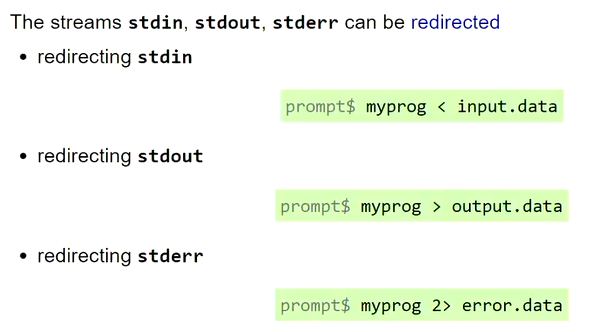lecture 10.11
1. struct中的pointer:
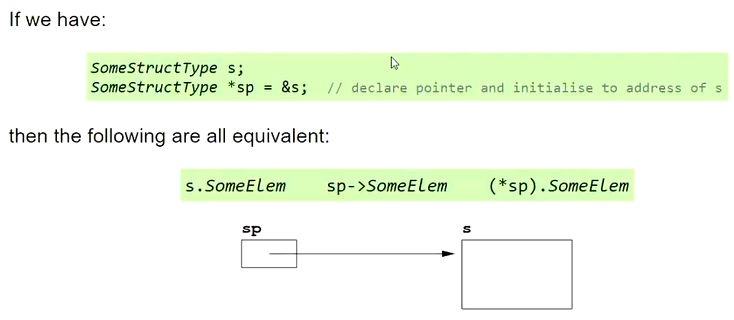
下面两者实现的功能是不一样的:
(a) *wp.salary=12500
(b) w.salary=12500
因为.的优先级更高,所以(b)会被翻译为*(wp.salary)=12500
所以应该写成*(wp).salary=12500或者wp->salary=12500
2. an executing C prpogram partitions memory into:
(a) code
fixed size, read only
(b) global data
fixed size
contain global variables (read and write) and constant strings(in double quote, read only,如printf)
(c) heap
fixed size, very large, read and write
contains dynamic data structures created by malloc
(d) stack
dynamically allocated data
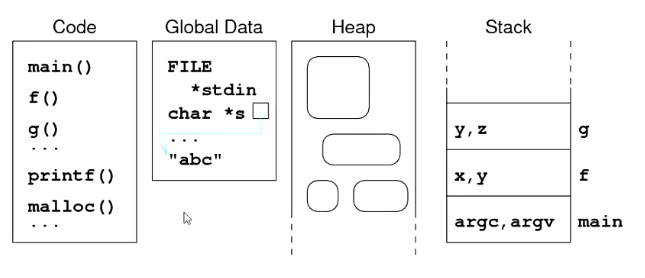
3. the malloc() function
can represent every type, so we write it as void *malloc(size_t n);
the function does:
(a) attempts to reserve a block of n bytes in the heap
(b) returns the address of the start of this block
(c) if insufficient space left in the heap, returns NULL 
important note:
- it is defined as part of
stdlib.h - its parameter is a size in units of bytes
- its return value is a generic pointer
(void *) - the return value must always be checked (may be
NULL)
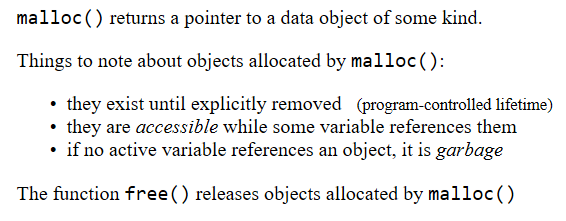
4. fprintf(file*stream, format)
5. sidetrack: standard I/O streeams, redirects
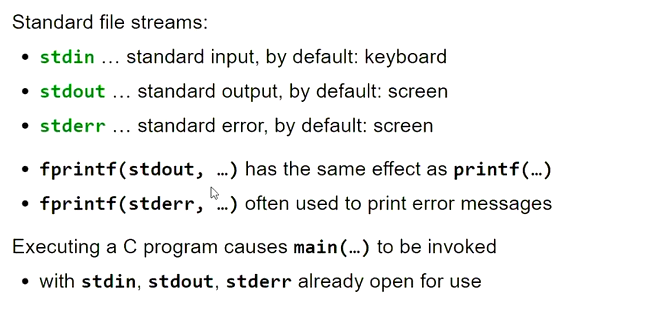
6.
